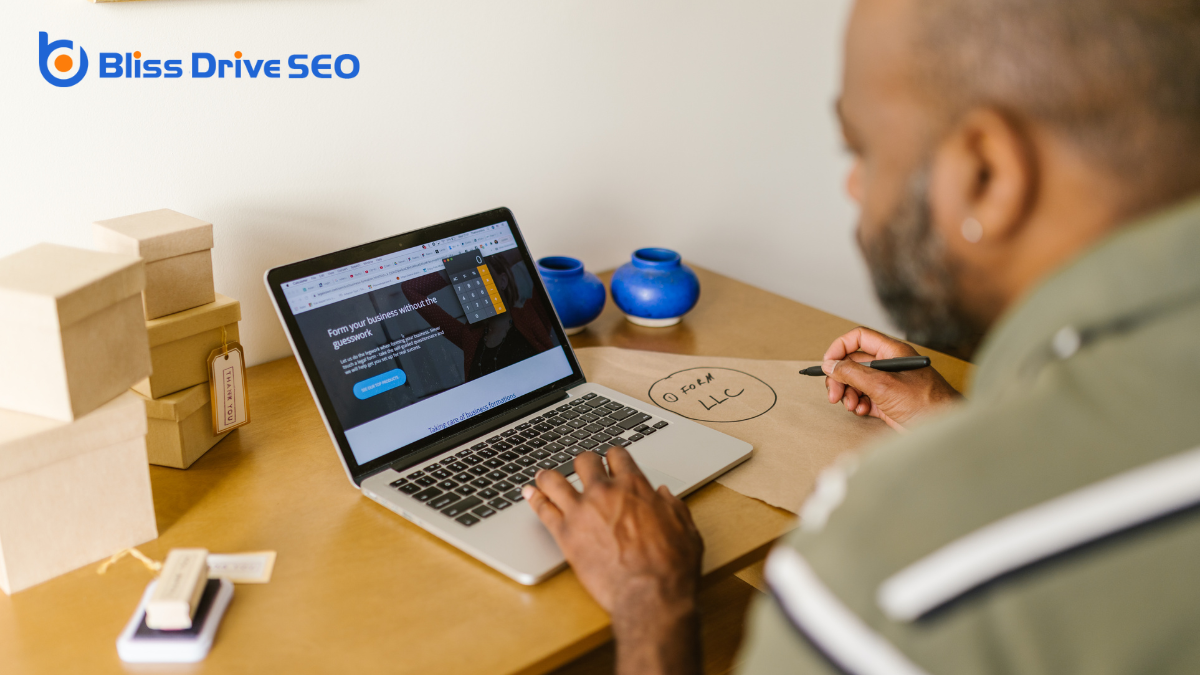Digital Marketing Services
Learn More About Us

You're probably wondering how to break into web development without any prior experience. It might seem intimidating at first, but with the right approach, it's entirely achievable. Start by understanding the basics of web development and choosing a programming language that suits your interests. Mastering HTML, CSS, and JavaScript is essential, and numerous online platforms offerThe specific product or service being promoted by affiliates. free resources to help you. Building your first project will be a valuable hands-on learning experience. But how do you guarantee you're on the right path and stand out to potential employers? Let's explore the next essential steps.
When stepping into the world of web development, it's vital to grasp the foundational concepts that underpin the field. You'll want to start by understanding how websites work. At its core, web development involves creating websites and applications that run online. These sites are made accessible via the internet, allowing users to interact with your creations.
A significant component of web development is knowing the difference between the front-end and back-end. The front end, often referred to as the client side, is what users see and interact with directly in their web browsers. This includes everything from layout and design to fonts and colors.
On the other hand, the back end, or server-side, is where the magic happens behind the scenes. It handles data storage, server configuration, and application logic.
Understanding web hosting is also important. Web hosting is where your website files are stored, making them accessible on the internet. Think of it as renting space on a server.
Finally, familiarize yourself with version control systems, like Git, which help you manage changes to your code. By mastering these basics, you'll set a strong foundation for more advanced web development concepts.

When choosing a programming language, consider starting with popular options like JavaScript, PythonA high-level programming language widely used for data analysis and machine learning., or Ruby, which are widely used in web development.
Think about your project goals to help determine which language best suits your needs. For instance, if you're interested in building interactive web pages, JavaScript is a great choice.
As you commence your journey to become a web developer, selecting the right programming language is an essential decision that can shape your learning path and career. Among the most popular choices, each language offers unique benefits and caters to different aspects of web development.
JavaScript stands out as a versatile and crucial language, perfect for both front-end and back-end development. It's widely used for creating interactive web elements and is a must-learn for aspiring developers.
HTML and CSS, while not programming languages, are fundamental for structuring and styling web pages, forming the backbone of front-end development.
Python is another excellent option, known for its readability and simplicity. It's increasingly used in web development, particularly with frameworks like Django and Flask that streamline backend processes.
Python's clear syntax makes it an ideal starting point if you're new to coding.
Ruby, with its elegant syntax, is famous for its framework, Ruby on Rails, which simplifies building robust web applications. It's great if you prefer rapid development and prototyping.
Finally, consider PHP if you're interested in server-side scripting. It's a staple in web development, powering many websites, including WordPress.
Choosing wisely will set a strong foundation for your future projects.
Starting on a web development project requires aligning your programming language choice with your project goals. To make an informed decision, think about what you're aiming to achieve. Are you developing a simple blog, a complex e-commerce site, or a dynamic web application? Each has unique demands, and choosing the right language can make the development process smoother and more efficient.
If your project is content-focused, like a blog, languages like PHP or JavaScript paired with a CMS like WordPress could be ideal. For interactive web applications, JavaScript frameworks like React or Angular might be more suitable.
Consider scalability and performance if you're building large-scale applications; languages like Python or Ruby could provide the flexibility you need.
Remember to factor in your personal learning curve as well. Some languages have steeper learning curves but offer powerful capabilities once mastered. Balancing your current skill level with your project requirements is vital.
To become a proficient web developer, mastering HTML, CSS, and JavaScript is essential. These three technologies form the backbone of web development. HTML structures content, CSS styles it and JavaScript adds interactivity. Getting a good grasp of these languages will set a strong foundation for your web development journey.
Start with HTML, the easiest of the three, as it's all about structuring content. Once you're comfortable, move on to CSS to learn how to make your web pages visually appealing. CSS allows you to design layouts, apply colors, and control the overall look of your site.
After mastering HTML and CSS, immerse yourself in JavaScript. It's a powerful language that will enable you to create dynamic and interactive web experiences.
Here's a quick guide to help you get started:
Online learning platforms are your gateway to exploring free coding resources that can boost your skills.
You can enroll in structured courses that provide a clear path to mastering web development essentials.
Don't forget to participate in online workshops for hands-on experience and real-time feedback.
While diving into the world of web development, you'll find an abundance of free coding resources that can jumpstart your learning journey.
These resources are perfect for beginners like you who are enthusiastic about grasping the fundamentals without spending a dime. Online platforms offer various tutorials, interactive exercises, and community support to help you develop your skills at your own pace.
Here are some excellent free resources to get you started:
As you progress in your web development journey, enrolling in structured courses can greatly enhance your skills. Online learning platforms like Coursera, Udemy, and Codecademy offer a wealth of structured courses tailored to different skill levels. These platforms provide a clear learning path, ensuring you cover essential topics like HTML, CSS, JavaScript, and more advanced frameworks.
By following a structured curriculum, you won't miss out on vital concepts, and you'll build a strong foundation.
Choosing the right course can be overwhelming, but focus on those with good reviews, thorough content, and practical exercises. Many platforms allow you to learn at your own pace, offering flexibility to fit your schedule.
Look for courses that include projects, as they help solidify your understanding and allow you to showcase your skills in a portfolio.
Certification can also be a valuable addition to your resume, demonstrating your commitment and proficiency to potential employers. While free courses are available, investing in a paid course often provides access to additional resources, support, and an official certificate upon completion.
Embrace structured courses as a key step in transforming from a beginner to a proficient web developer.
Many aspiring web developers benefit from participating in online workshops, which are an excellent way to gain hands-on experience and interact with industry professionals. These workshops offer a practical approach to learning, allowing you to apply theoretical knowledge in real-world scenarios.
You'll find opportunities to engage with instructors and peers, providing a supportive environment to ask questions and solve problems together.
Online workshops can offer several advantages:
When choosing online workshops, consider platforms like Coursera, Udemy, or LinkedInA professional networking site used for career and business networking. Learning, which offer a wide range of topics and skill levels.
Look for workshops with positive reviews and those that include interactive elementsElements that require user interaction, such as buttons, forms, and sliders. like coding challenges or live Q&A sessions. By immersing yourself in these environments, you'll enhance your skills and build confidence, paving the way for a successful web development career.

Starting your first web development project can feel intimidating, but it's an essential step in honing your skills. By building a project, you apply what you've learned, identify areas for improvement, and gain practical experience.
Begin by selecting a project that excites you, like a personal portfolio website or a simple blog. A project with personal relevance keeps you motivated and invested in the learning process.
Break the project down into manageable tasks. Outline the features you want, such as a navigation bar, interactive buttons, or a contact form. Use HTML for structure, CSS for styling, and JavaScript for functionality.
Don't worry about making it perfect; focus on getting something functional first. You'll improve it as you learn more.
Utilize online resources. Platforms like GitHub offer numerous examples and tutorials. Study others' code to understand different approaches and best practices. Experiment and adjust as needed, and don't hesitate to dive deep into documentation or tutorials when you're stuck.
Remember, problem-solving is a significant part of development.
Finally, reflect on what you've built. Analyze what worked well and where you struggled. This reflection will guide your next steps and solidify your understanding.
Connecting with a developer community is an invaluable step in your web development journey. It not only provides support but also helps you grow your skills and network. By engaging with others, you can share experiences, ask questions, and receive feedback that accelerates your learning.
Communities offer a wealth of resources and connections that can make your path to becoming a web developer smoother and more enjoyable.
Here's how joining a developer community can benefit you:
To get started, look for online forums, local meetups, or social media groups focused on web development. Platforms like GitHub, Stack Overflow, or Reddit are great places to connect with other developers.
After immersing yourself in a developer community and gaining valuable insights, it's time to focus on creating a professional portfolio. Your portfolio is your digital handshake, showcasing your skills and projects to potential employers or clients.
Start by selecting a few projects that highlight your strengths. These projects don't have to be complex; even small ones can demonstrate your capability and growth. Make sure each project is well-documented. Include a description of the technologies used, your role, and the challenges you overcame.
Next, consider the design of your portfolio site. Keep it simple, clean, and easy to navigate. Your design shouldn't overshadow your work but should complement it. Highlight your contact information prominently so interested parties can reach out easily.
Don't forget to include an "About Me" section. Share a bit about your journey into web development and your passion for the field. This adds a personal touch and makes you more relatable.
Finally, regularly update your portfolio with new projects and skills. This shows you're constantly learning and evolving, which is attractive to employers. By following these steps, you'll create a compelling portfolio that stands out.
You've got the roadmap to kickstart your journey into web development. By understanding the basics, choosing the right programming language, and mastering HTML, CSS, and JavaScript, you're setting a solid foundation. Immerse yourself in online learning platforms and start building your first project. Engage with developer communities for support and growth. Finally, create a professional portfolio to showcase your skills to potential employers. With dedication and persistence, you're well on your way to becoming a successful web developer.
